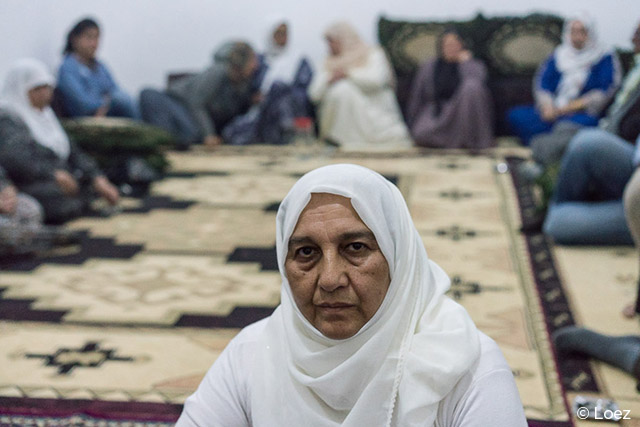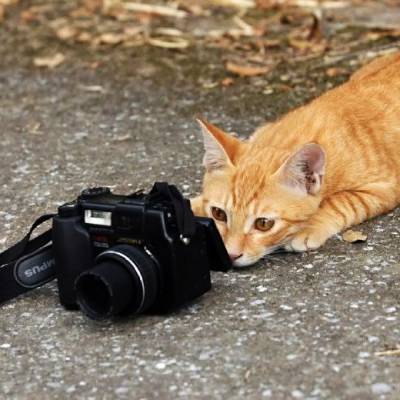In a small street in Kobane, the walls surrounding the Kongra Star building – the women’s movement within the Democratic Federation of Northern Syria – house a vast and peaceful garden, green and flowery on this sunny day of late April.
The calm is disturbed only by the roar of the generators. In the shade of an awning, some women discuss over tea. They are fighting within the Kongra Star for the emancipation of women in the region, drawing on the experience of decades of reflection and struggle of the Kurdish women’s movement. In cities strongly marked by war, such as Kobane, of which nearly 50% has been destroyed, it is necessary not only to take care of the reconstruction, but also of the establishment of social structures to organize society, ensuring the participation of women, who played a decisive role in the liberation of the city, with the sacrifice of Arîn Mirkan and of the now-famous commander Nysrin Abdullah.
Kobane, April 2018. The municipality decided to keep a district of the city in its post-war state. They call it the “museum”, to bear witness to the violence of the fighting. For lack of choice, some residents have returned to live there until the construction of new housing for them is completed.
Nejbir, a young woman in her twenties, is an officer of the Kongra Star in Kobane.
“I was a child when Apo1was with us in Syria. When the revolution began, as a Kurdish student, I wanted to join it. (…) Before the revolution, our society was not as progressive as it is now, it was very conservative. It was difficult as a woman to join the revolution, and at the same time we wanted it, we felt the need for it. We do not only work with Kurdish women but with all women. Now Arab women too have gained in freedom. Apo’s philosophy has been an inspiration to us all.”
Kobane, April 2018. Women played a decisive role in the liberation of the city, notably with the sacrifice of Arîn Mirkan. This downtown statue is dedicated to them.
The women’s movement is based on the theory of the Democratic Nation developed by Abdullah Öcalan, imprisoned leader of the PKK, and in which the liberation of women is one of the three major axes, alongside democracy and ecology. Later, the Kurdish women’s movement developed its theoretical and practical approach to women’s empowerment through the concept of jineologî, literally “women’s science”. Where they are present, the women of the movement set up non-mixed structures, parallel to the mixed structures: women’s assembly (organisation), women’s house (defend rights / fight against violence), women’s academy (training/education), women’s security forces, etc.
Kobane, April 2018. Land of the agricultural cooperative managed by women.
“You see the revolution that women are leading.” Nejbir continues. “The struggle is underway in all domains of society, not just the military. In Kobane, a large part of the town was destroyed,
The economic field is very important. If you are not economically independent, you cannot be independent at all. In our philosophy, we do not say that economics is the basis of everything but it is part of women’s liberation. We cannot win their release without ensuring their economic independence.
After the liberation of Kobane, we organized a meeting with the women, and we decided to create cooperatives in different fields, including textiles and agriculture. Later, we built a bakery run by women. There is also a cooperative that plants trees.
At first, Kobane’s bank2lent us funds. The autonomous administration has helped. The municipality provided us with free land. And everyone who wanted to help was able to participate in the project. We are now planning to expand our cooperative system. For example, we want to create farms for animals. Our system is not yet an alternative to capitalism, present throughout the world. But our system here must help society.”
Saliha and Yasmine
Saliha is one of the two co-supervisors of the Kongra Star Economic Committee.
“We are trying to bring [the cooperative system] to life in Rojava. In early history, women were responsible for economic issues before they lost control of them. But now we are trying to develop this cooperative system so that women can regain control over the economy. Our cooperatives in the Kongra Star are run by women. They started two years ago, first in the agricultural sector. There is also a textile workshop and a knitting shop. And women making dolmas. We also have a bakery run by women. Currently in the agricultural sector, about fourteen women work. In the textile workshop, seven to eight women.”
Yasmine, former academic, works with Saliha in the economic committee of the Kongra Star. She comes from Efrin and arrived recently, following the Turkish attack. There, she was already working with the women’s movement.” Before the revolution I was teaching at the university. Then I got involved in the economic field. I found [Kongra Star’s economical projects] very interesting, I decided to participate in them. This is different from what I have seen elsewhere, in Lebanon, Turkey and Syria. I had not seen a women’s organization developed to such an extent elsewhere.”
“Women working in cooperatives feel empowered,” says Saliha, “they see that they can do things, that they do things. Because they participate in the system and because they produce their own sources of income, they feel empowered.
The women who come to work in co-ops are those who believe in themselves. They want to do something in society. There are women who for one reason or another didn’t come to co-ops but they end up doing it because they need a job.”
The women have planted these trees, but irrigation problems are holding back their growth.
This is the case of Hadla, about fifty years old, who works in the textile cooperative.
“I’ve been working here for a month. I wanted to earn money for my children. A woman in our neighborhood knew about this place, she told me about it. After Daesh’s attack, we went to Turkey as refugees, I worked in the fields. Then we came back. But before I left Kobane, I was a seamstress.”
Hadla
In the vast hangar where rows of sewing machines line up, six or seven women work making clothes. They were recently joined by some men, who work in a nearby room; refugees from Efrin. Khaled heard about the co-op on television. After he arrived in Kobane, he went to visit them and asked if he could work with them. Missing workforce, the women agreed. Today, they operate in two different cooperatives, but in the same place, and are organized together.
Nisrin, a 20-year-old from Kobane, has worked in the textile cooperative for almost two years.
“Four months after Kobane was released, I came here. My aunt is a seamstress, she told me about this place. I’ve worked with different teams. We sew, iron, pack. Production depends on demand, there are orders. I love this job. I want to keep working here, professionalize myself.”
Nisrin
Saliha continues :
“In Kobane, there is still no cooperation between sales outlets and cooperatives. But it exists in other areas. In Derik, for example, there is a shop run by women. Each worker’s salary depends on their production. We have a system to organize ourselves. Let me give you an example. We have weekly meetings (tekmil) during which we evaluate what we have done and possibly suggest ways to improve the work. In addition, every month a report is written for the Kongra Star by the local branch of the women’s movement.”
The issue of compensation varies among co-ops. In a number of them, the equal sharing of work and remuneration between the different members is a basic principle. In Kobane, Nejbir justifies the different remuneration by the fact that some women only participate at the margin of the project “by watering the trees for example”.
Adila, a teacher, participated in the creation of a cooperative that manufactures and sells sewing and knitting works. Here, production and sales take place in the same spot.
“This co-op opened three months ago. I haven’t stopped teaching,” says Adila, “but now I do both. This cooperative was our idea. We introduced it to the Kongra Star who then helped us. I’ve wanted to do this kind of work for a while. After the revolution, we wanted to do something so that these traditional techniques would not be forgotten. It’s working pretty well.” Adila continues. “At first, we had a lot of customers, because it was winter and what we do is more of a winter thing, but now it’s a bit down.”
“The situation in Bakur3is different from here.” Saliha observes. “Our society is very conservative. We are only now beginning to change it, and we are working on it. That is why there are still not enough women here in cooperatives. What you saw is just the beginning. We’ve tried to make co-ops a social place, but it hasn’t worked yet. At first there were problems with husbands, who did not understand the purpose of the project well. But we have worked hard to change that mentality. Our goal is not just to give women a job, we want to empower women, so that they may go out, be active. If women stay at home with nothing, their minds collapse. But if they go out, do something creative, meet people, their morale improves. We want to take women out, socialize them, make them active in society, not just make economic cooperatives. The revolution was like a leap forward. As a Kurd, this movement has been going on for 40 years. We grew up with this philosophy, which is not only for the Kurdish movement but for everyone. Freedom is difficult to achieve, and for this purpose you must dedicate yourself entirely to it. Some women burned themselves alive for it. When you believe in something, you do it. Because we believed in that philosophy, we took the risk.”
Kobane, April 2018. “Komutan” has supported the PKK since its inception. As a young girl, she had to fight social pressure to attend meetings, events. Today, she is co-president of a commune and participates in the women’s movement.
.
.
.
.
.
.
.
.
.
.
.
Ayse Effendi is the co-president of the Tev-Dem of Kobane. She is in charge of setting up and organizing the komîn. “What is the international community doing to free Ocalan? We fought Daesh, but Daesh is the enemy of all humanity. Now everyone knows that Turkey supports jihadists. But why are they looking away from their actions? You see the price we paid in this struggle, and the thanks we now receive is the occupation of Efrin. Russia betrayed us. Nobody did anything. But the fight at Efrin continues. Ask yourselves why, when it comes to the Kurds and the oppression they suffer, the whole world is silent. Many mothers here lost children in this war, who took up arms against Daesh. We want to get this message to the world: if you do not let Efrîn’s children grow up in a peaceful environment, the rest of the world will find it difficult to be at peace. Efrin will return to the hands of its people.”
Loez
April 2018
Kobane • Les coopératives comme outil d’émancipation des femmes Cliquez pour lire
Kobane • Las cooperativas como útil de emancipación de la mujer Haga clic para leer

















